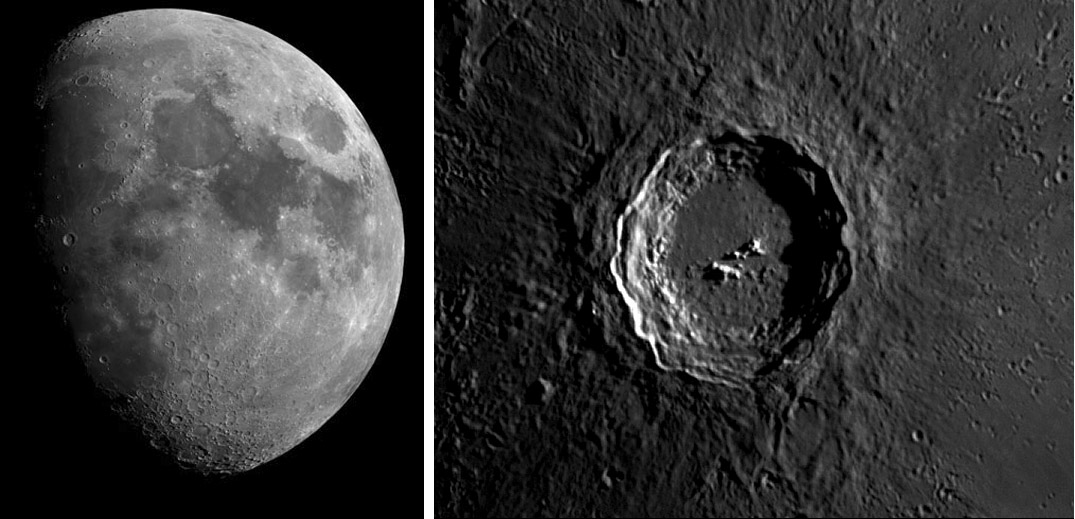September 6, 2018
A Really Big Moon
Originally published June 24, 2009

image by Lunar World Record 2009 Consortium, England
The image on the left is an adequate capture of a gibbous Moon, and the one on the right is an LPOD-quality close in view of Copernicus, king of the craters. The odd thing is that the right is simply an enlargement of the left. And the enlarging process is a visual joy, for this largest ever mosaic is viewable with Microsoft Deep Zoom (previously Seadragon) software, which allows clicking on the mosaic to zoom in to successively larger scale views. This is similar to the viewing system for Google Earth but faster, and the image shivers just as it comes into focus, almost like seeing suddenly sharpening up. The mosaic was made from about 1000 individual subimages acquired by a British team of 10 observers including LPOD regular contributors such as Damian Peach and Pete Lawrence. Careful planning had each observer imaging specific sections of the Moon, all on the same night. The resulting image appears to be about 2 m wide, which qualifies as a Guinness World Record. I wonder if it really is the largest mosaic? The same with his great 300" map, making a mosaic of 7.6 m. But this was not an image mosaic. Perhaps the largest image mosaic ever was a one time laying out of full resolution Lunar Orbiter IV photographic prints of the lunar nearside on the floor of a large lecture hall at a scientific meeting in Europe in about 1968. The images were covered with thick transparent mylar sheeting and scientists crawled around on their hands and knees inspecting them closely!
Chuck Wood
Technical Details
4 April, 2009, various telescopes and 10 different observers.
Related Links
Rükl plate (for Copernicus) 31
Yesterday's LPOD: Carefully Observing the Sky
Tomorrow's LPOD: The Biggest Moon On Earth
COMMENTS?
Register, Log in, and join in the comments.



